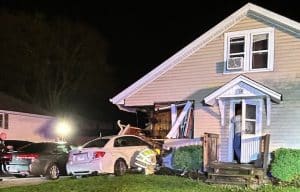Illinois passes budget
The Illinois House of Representatives passed a $50.6 billion state budget at the very end of its spring session, with the final vote coming in early Saturday morning.
Lawmakers had to jump through some procedural hoops to meet constitutional requirements while still passing the bill in time to leave Springfield for the bulk of Memorial Day weekend because the Illinois Constitution requires bills to be read into the record by title on three different days before a vote can be taken.
The 73-38 vote – which followed party lines – came around 2:30 a.m. May 27 after lengthy debate during which Democrats called the budget “balanced” and “compassionate” while Republicans claimed it masks hidden costs and fails to address the state’s most urgent priorities.
The final spending plan now awaits a signature from Gov. JB Pritzker.
The budget is substantially similar to the one Pritzker outlined in his February proposal, with education and social programs highlighting new initiatives for Fiscal Year 2024.
“Smart Start Illinois” is a multi-year plan that aims to make childcare and preschool available to every three- and four-year-old whose family wants those services.
For the upcoming fiscal year, that includes $250 million to increase the number of preschool slots available, stabilize the early childhood workforce and expand early intervention and home visit programs.
There is also a $550 million increase in spending to cover costs associated with a Medicade-like program which provides health care to undocumented Illinois residents.
The budget also includes Pritzker’s “Home Illinois” initiative – an $85 million increase in funding to support homelessness prevention, affordable housing, outreach and other programs.
“This budget reaffirms our shared commitment to fiscal responsibility while making transformative investments in the children and families of Illinois that will be felt for years to come,” Pritzker said in a statement after the vote. “I look forward to signing this budget making childcare and education more accessible, healthcare more affordable and our state’s business and economic position even stronger.”
State Senator Terri Bryant (R-Murphysboro) criticized the budget’s inclusion of immigrant-friendly spending.
“Instead of providing our state’s struggling developmentally disabled communities with the funding that they so desperately need, (state Democrats) chose to spend over $100 million on immigrant welcome centers and hundreds of millions of dollars for their totally free, undocumented immigrant healthcare program,” Bryant said. “Again, priorities are important, and it is extremely sad that the super-majority chose to prioritize non-citizens over our state’s most vulnerable citizens.”
Rep. David Friess (R-Red Bud) took issue with the delay in passing the budget as well as the focus on Democrats’ initiatives rather than providing relief to taxpayers.
“Illinois families are still grappling with high inflation. Groceries, utilities, gas and other living expenses have all gone up. That isn’t stopping Illinois Democrats from working to lock Illinois taxpayers into long-term spending commitments for new programs and pet projects,” Friess said. “Not only that, but they’ve done it all at the last minute, choosing to unveil the budget after their own self-imposed deadline. These stalling tactics need to end so that Illinois can have a fair, sustainable and responsible budget once again.”
Before the 2:30 a.m. vote on the spending plan, House members also voted on eight other bills Friday night. Those measures included a controversial bill that would give Ameren Illinois, the electric utility for much of Southern Illinois, the “right of first refusal” on the construction of transmission lines.
Another pair of bills that received only Democratic votes concern health insurance – one would give the state’s Department of Insurance the power to review and reject insurance rates, and the other would create a new state-based insurance marketplace.
A few of the late-night bills received unanimous votes in the House, including one that would create a tax credit program aimed at eventually attracting one of the six to 10 “hydrogen hubs” the federal government hopes to place around the U.S. as hydrogen clean energy technology continues to evolve.
A bipartisan majority of House members also approved one final measure before adjourning, which would permanently establish a previously experimental diversion program for first-time gun offenders.
The pilot program was proposed to be open only to those under the age of 21, but all first-time offenders are now eligible for the permanent program.
It was also modified to allow for greater prosecutorial and judicial discretion in those cases.
(with reporting from Captiol News Illinois)






